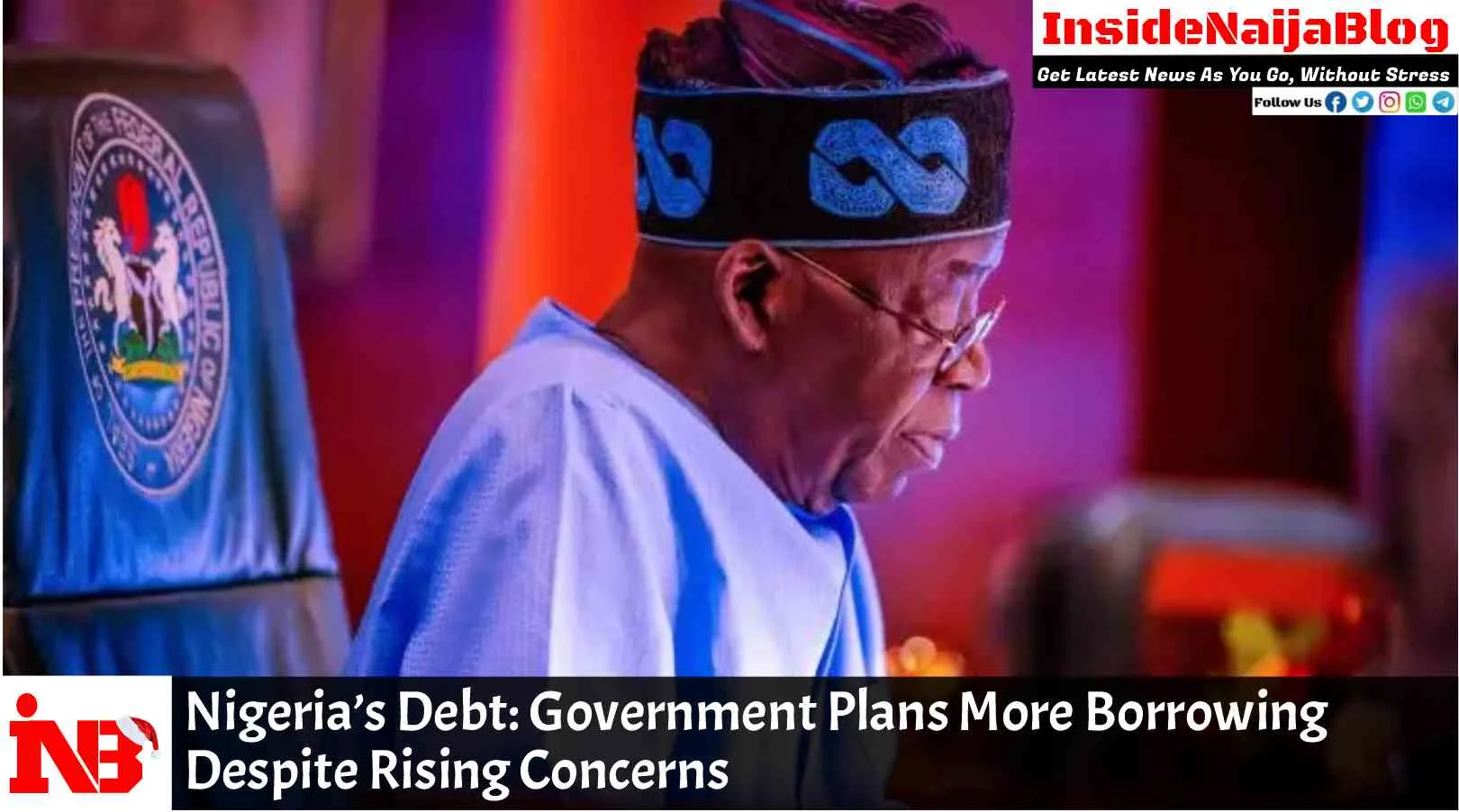As President Bola Tinubu prepares to unveil the 2025 national budget to the National Assembly, the Nigerian government is facing mounting criticism over its borrowing plans. The proposed budget, heavily reliant on loans, signals a further increase in the country’s debt, with projections showing domestic borrowing exceeding planned targets by a significant margin.
Borrowing Already Surpassing Targets
In 2024 alone, the Federal Government borrowed ₦8.93 trillion from local investors by November, far exceeding the ₦6 trillion projected for the entire year. Analysts now anticipate total borrowing to hit ₦10 trillion by year-end—67% above the initial estimate.
Looking ahead, the government plans to address the 2025 budget deficit, estimated at ₦9.22 trillion, through a combination of domestic and foreign borrowing. This marks an 18% increase compared to 2024’s deficit.
Debt Breakdown
Reports from the Debt Management Office (DMO) and Central Bank of Nigeria (CBN) reveal the government’s reliance on various instruments to meet its borrowing needs.
- Treasury Bills (NTBs): In the third quarter of 2024 alone, ₦1.18 trillion was raised through NTB auctions.
- FGN Bonds: These accounted for ₦939 billion, while FGN Savings Bonds contributed ₦14 billion during the same period.
- First Half of 2024 (H1’24): Domestic debt stock stood at ₦66.96 trillion, a 38.6% increase compared to ₦48.31 trillion in the same period of 2023. Borrowing through NTBs reached ₦11.8 trillion, up from ₦4.7 trillion in H1’23.
Rising Interest Rates Driving Borrowing
The Central Bank of Nigeria’s aggressive monetary policy has contributed to the government’s borrowing spree. The Monetary Policy Rate (MPR) rose sharply from 18.75% in February to 27.5% in November, driving up interest rates on borrowing instruments. For instance:
- 364-Day Treasury Bills: Rates increased from 12% in January to 22.93% by November.
- FGN Savings Bonds (2-year tenor): Interest rates jumped to 17.48% in December 2024, compared to 12.28% in December 2023.
These higher rates attract investors but also increase the government’s debt servicing costs.
Expert Opinions on Implications
Economic analysts and financial experts have raised concerns about the rising debt levels and their impact on Nigeria’s economy:
Debt Sustainability:
- David Adonri, Vice Chairman at Highcap Securities, warned of a potential debt trap, where new loans are required to service existing obligations.
- He highlighted the risk of inflation and private sector crowding out, as government borrowing drives up interest rates and reduces funds available for businesses.
Impact on Inflation and Currency:
- Victor Chiazor, Head of Research at Fidelity Securities, noted that excessive borrowing has fueled inflation and indirectly impacted exchange rates.
- He cautioned that the private sector struggles to borrow at elevated rates, which could stifle business growth.
Infrastructure Investment Concerns:
- Dr. Muda Yusuf, CEO of CPPE, emphasized the need for borrowing to focus on productive sectors like infrastructure, rather than recurrent expenditures.
- He warned that increasing domestic debt could crowd out private sector credit, limiting economic growth.
Long-term Risks:
- Tajudeen Olayinka, Investment Banker, stressed the importance of managing debt sustainability ratios, including debt-to-GDP and debt-to-revenue. He urged the government to focus on boosting economic productivity to handle the rising debt burden.
Potential Benefits:
- Olatunde Amolegbe, former President of the Chartered Institute of Stockbrokers, argued that while borrowing is essential for growth, it must be tied to impactful projects. He noted that attractive interest rates on FGN Savings Bonds could serve as wealth redistribution.
Fiscal Policy Outlook
The government’s 2024 budget projected ₦27.5 trillion in expenditure against ₦18.32 trillion in revenue, leaving a fiscal deficit of ₦9.05 trillion. This deficit was planned to be financed through:
- Domestic borrowings (₦6.04 trillion)
- Foreign borrowings (₦1.77 trillion)
- Multilateral/bilateral loans (₦941 billion)
- Proceeds from privatization (₦298 billion)
What Lies Ahead
As Nigeria’s debt rises, the government faces the challenge of balancing its borrowing needs with economic stability. While loans are necessary for growth, over-reliance on borrowing without tangible economic benefits could worsen inflation, devalue the naira, and limit private sector growth.
Experts agree on the need for fiscal discipline and a clear focus on productive investments that enhance infrastructure and boost economic output. Without these measures, Nigeria risks falling deeper into a cycle of unsustainable debt.




This is so funny, where in earth is all these borrowed money going into? Sometimes I think this country leaders are just saying n that position to make the poor getting poorer while the rich keep getting rich. It’s not fair. You submit budget of trillions yet the people are suffering nothing to show for it